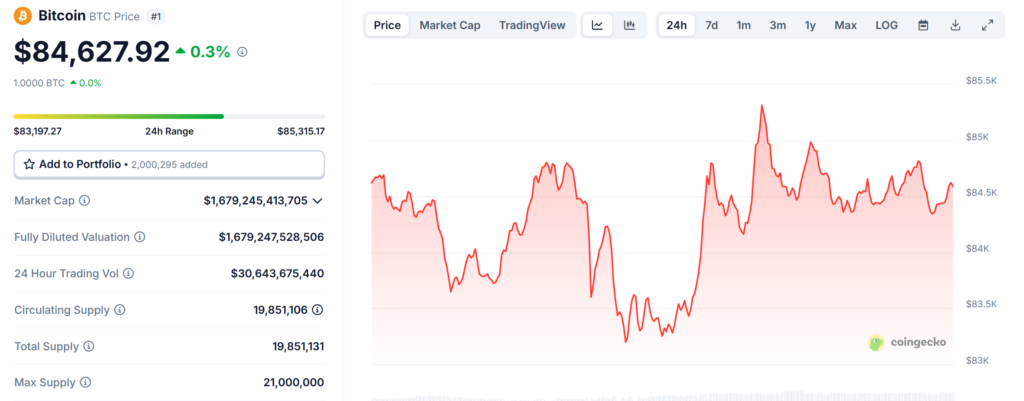A groundbreaking study from Harvard University’s T.H. Chan School of Public Health, led by Dr. Francesca Dominici, has shed light on the severe environmental repercussions of Bitcoin mining in the United States.
Published in Nature Communications, the research reveals that fine particulate matter released from Bitcoin mining operations doesn’t stay confined to local areas.
It travels across state borders, affecting air quality and public health far beyond the origin points.
Between August 2022 and July 2023, approximately 1.9 million Americans were exposed to unhealthy air pollution levels directly tied to energy demands from Bitcoin mining facilities, raising serious environmental and public health concerns.
Fossil Fuel-Powered Mining Creates Widespread Pollution
The study focused on emissions generated by the 34 largest Bitcoin mining facilities in the U.S., highlighting how their vast electricity demands increase the output of fossil fuel power plants, particularly those reliant on coal and natural gas.
In many cases, the mining sites are located in states that don’t even host the power plants that ultimately supply them with energy.
For instance, a mining facility in North Carolina significantly contributed to increased output at a coal plant in Kentucky, which released pollutants that drifted across multiple states, ultimately degrading air quality in Illinois.
Cities such as New York City, Houston, and Austin, as well as regions in Northeast Texas and the Kentucky-Illinois border, are bearing the environmental burden of mining operations from hundreds of miles away.
Also Read: Canaan Raises $200 Million to Accelerate Bitcoin Mining Expansion Across the United States
Lack of Oversight Leaves Affected Communities Unprotected
The research also reveals a glaring lack of regulatory safeguards or accountability mechanisms that would protect communities impacted by such pollution.
Because Bitcoin mining is a decentralized activity and often shrouded in operational secrecy, communities affected by cross-state emissions have little or no legal recourse.
Those suffering health and environmental consequences typically gain no direct economic benefits from the mining activity itself.
The Harvard team argues that this highlights a critical failure in both environmental regulation and interstate coordination.
Without stronger federal oversight or unified policy frameworks, these harmful patterns are likely to persist, and grow, alongside the expansion of crypto mining infrastructure in the U.S.
Bitcoin’s Soaring Price Underscores the Sustainability Paradox
Despite increasing scrutiny over its environmental impact, Bitcoin’s market performance remains strong.
As of now, Bitcoin (BTC) is trading at $84,695.20, with a 24-hour trading volume surpassing $30.6 billion.

The token has seen an 11.01% gain over the past week, driving its market capitalization to $1.68 trillion. These rising numbers reflect continued investor confidence in Bitcoin as a digital asset.
However, the stark contrast between Bitcoin’s soaring financial valuation and its growing environmental cost is fueling a broader debate.
Critics argue that the cryptocurrency sector must find more sustainable solutions to reconcile its economic promise with its real-world consequences.
Industry Expansion Continues Amid Environmental Warnings
Even as environmental concerns gain traction, the Bitcoin mining industry continues to expand through new ventures and international interest.
F2Pool, one of the world’s largest mining pools, recently announced sponsorship of SpaceX’s Fram2 mission, symbolizing a novel partnership between crypto and aerospace sectors.
Meanwhile, Hut 8 has partnered with Eric Trump to launch a U.S.-based Bitcoin mining firm, aiming for over 50 EH/s of computing power with improved energy efficiency.
In South Asia, Pakistan is exploring Bitcoin mining as a means to utilize surplus power and stabilize energy costs.
These developments suggest that while environmental critiques are intensifying, Bitcoin mining’s global momentum shows no signs of slowing, further intensifying the need for sustainable innovation and regulation.
Also Read: Tether (USDT) Expands Investment In Bitcoin Mining Firm Bitdeer Amid Ongoing Regulatory Pressure


